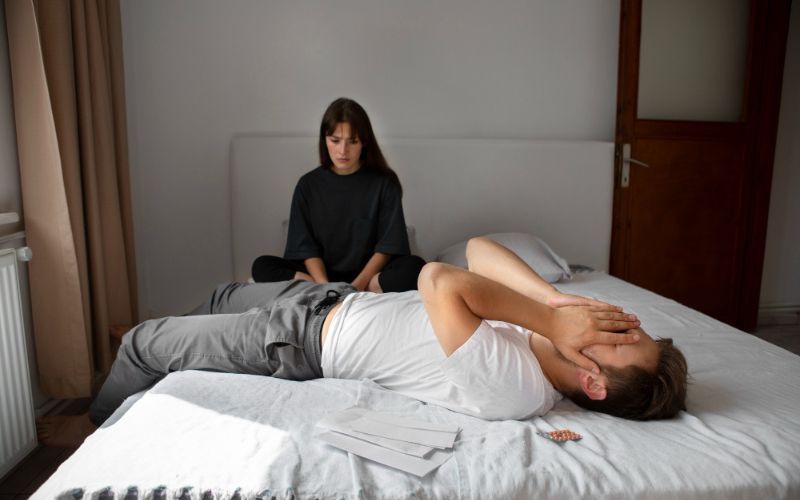Anxiety is something that many people experience at different points in their lives. Whether it’s a constant sense of unease or periodic feelings of stress, anxiety can impact your overall well-being. Fortunately, there are practical techniques you can use to cope with anxiety and manage everyday stress effectively. Here are some simple but powerful strategies you can implement to find relief.
Practice Mindfulness and Deep Breathing
One of the most effective ways to reduce anxiety is through mindfulness and deep breathing exercises. When you focus on your breath, you can help calm your mind and body by bringing your attention to the present moment. Mindfulness allows you to acknowledge and accept your thoughts without judgment, which can significantly reduce anxious feelings.
To practice mindfulness, find a quiet space, sit comfortably, and take slow, deep breaths. Focus on your inhalations and exhalations, and if your mind starts to wander, gently guide it back to your breathing. Doing this for even five to ten minutes a day can help lower stress levels over time.
Challenge Negative Thoughts
Anxiety often stems from negative thoughts that spiral out of control. Learning to challenge these thoughts can reduce the intensity of your anxiety. When you notice yourself thinking negatively, pause and ask if there is any evidence to support these thoughts. Are they rational, or are they based on fear and assumptions? Reframing your thoughts to be more realistic and positive can help prevent them from escalating into overwhelming anxiety.
It can also be helpful to write down your negative thoughts and counter them with more balanced and constructive statements. For example, instead of thinking, “I’ll fail at this task,” challenge it with, “I have prepared well, and I will do my best.”
Create a Healthy Routine
Establishing a routine can create a sense of stability and predictability, which is helpful for managing anxiety. Include regular physical exercise, a healthy diet, and sufficient sleep in your daily routine. Exercise is a natural anxiety reliever, as it releases endorphins that improve your mood and reduce stress. Even a brisk walk around the block can have a positive impact on your mental health.
Sleep is also crucial for managing anxiety. Develop a bedtime routine that helps you relax, such as reading a book or taking a warm bath, and aim to get seven to eight hours of sleep each night.
Limit Stimulants and Avoid Alcohol
Caffeine, sugar, and alcohol are known to exacerbate anxiety. Limiting your intake of these substances can reduce the severity of your symptoms. Caffeine can cause jitteriness and heightened alertness, which can amplify anxious thoughts. Try switching to herbal tea or decaffeinated coffee to help keep your anxiety in check.
Alcohol might initially seem to calm your nerves, but it can disrupt your sleep and increase anxiety in the long run. Limiting or avoiding alcohol is beneficial for reducing anxiety symptoms.
Practice Self-Care and Relaxation Techniques
Taking time for yourself is vital when coping with anxiety. Activities that you enjoy and that help you relax can boost your mood and reduce stress. This could include hobbies like painting, writing, gardening, or simply spending time in nature. Relaxation techniques like yoga and progressive muscle relaxation can also help ease tension in your body.
Stay Connected
Social support plays an essential role in managing anxiety. Connecting with friends and family can provide a sense of comfort and security, reducing feelings of isolation and worry. Whether you talk in person, on the phone, or through text, sharing your thoughts and experiences with someone you trust can help you feel more grounded.
In addition, consider joining a support group or seeking professional counseling if your anxiety is significantly impacting your daily life. Therapy provides tools and coping strategies tailored to your needs, making it an invaluable resource.
Conclusion
Coping with anxiety takes practice, and it’s essential to be patient with yourself throughout the process. By incorporating mindfulness, challenging negative thoughts, creating a healthy routine, and seeking social support, you can manage your anxiety more effectively. Remember, small changes can make a big difference in your overall well-being. Taking proactive steps towards self-care can help you find relief from anxiety and regain control over your daily life.

